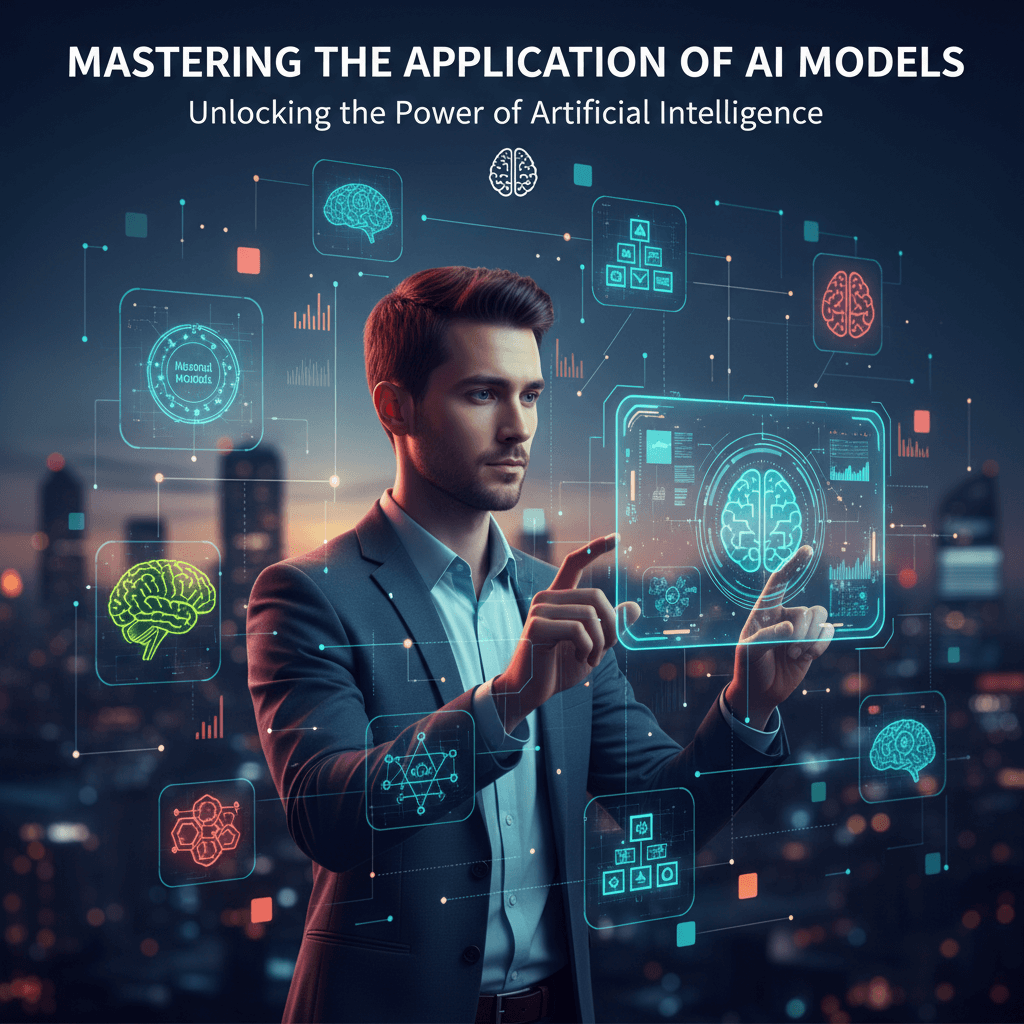
Learn how to effectively apply AI models in your business.
Artificial intelligence is no longer a futuristic concept - it is the engine behind the world’s fastest-growing companies. From customer service to operations, marketing, and sales, AI is transforming how businesses operate and grow. But while everyone is talking about AI, only a fraction truly understand how to apply AI models effectively in real business environments.
At Staffono.ai, we work every day with advanced AI models to help companies automate customer interactions across WhatsApp, Instagram, Telegram, Facebook Messenger, and web chat. Through this experience, we have learned what actually matters when implementing AI - and where most businesses make mistakes.
This article breaks down the essentials of mastering the application of AI models, even if you are not a technical expert.
Before applying AI, it is important to understand the fundamentals.
Modern AI models - especially Large Language Models (LLMs) like GPT-based systems - perform incredibly well at:
Understanding natural language
Responding with context-aware answers
Following instructions
Reasoning within given constraints
Generating human-like text
But they do not come preloaded with your business knowledge.
To use them effectively, you need to provide the right data, instructions, and structure.
This is where the real mastery begins.
Every powerful AI implementation is built on three pillars:
Prompts tell the model how to respond.
A weak prompt equals weak output.
Strong prompts include:
clear instructions
desired format
tone of voice
business-specific rules
boundaries (what the model should not do)
Context is where AI transforms from "generic chatbot" to "your intelligent employee".
High-quality context can include:
FAQs
product information
pricing
company policies
service descriptions
scheduling rules
industry-specific terminology
At Staffono.ai, we use RAG (Retrieval-Augmented Generation) to load your knowledge into the AI employee so it can answer accurately.
Modern AI shines brightest when it can take actions, not just answer questions.
Examples:
booking appointments
checking availability
sending notifications
creating leads or orders
escalating to a human agent
This is where API integration becomes vital.
Not all models are equal. The right choice depends on your goal:
| Use Case | Best Model Type | Description |
|---|---|---|
| Customer support | LLM with RAG | Accurate, contextual answers |
| Lead generation | Instruction-tuned LLM | Engaging, persuasive conversations |
| Automation | LLM + function calling | AI can trigger actions |
| Content generation | Creative models | Produces natural, high-quality text |
Staffono.ai abstracts this complexity - you simply connect your channels, upload your knowledge, and the system selects the optimal model for your task.
Many people believe AI needs months of training.
In reality, modern AI can be deployed instantly if structured correctly.
Here is the process we use at Staffono.ai:
Gather business data
FAQs, service list, pricing, policies, schedules.
Organize knowledge into embeddings
This allows the AI to retrieve the right information on demand.
Build system-level instructions
What tone should the AI use?
What is its role?
What is allowed or forbidden?
Test, refine, and validate
Real conversations shape the final behavior.
This method achieves results that feel like a perfectly trained employee - without long development cycles.
Even with great technology, many teams fail due to avoidable mistakes:
AI must be fed your data - otherwise results will be generic or inaccurate.
The best approach is staged automation: first replies, then bookings, then advanced logic.
Boundaries and rules are essential for reliability.
AI should handle 80-90%, with humans stepping in when needed.
Staffono.ai solves all of these with a structured, safe AI workflow.
If implemented correctly, AI can handle:
24/7 customer support
Browsing and recommending services
Appointment booking
Lead qualification
Product inquiries
Pricing and availability questions
Upselling and cross-selling
Gathering user information
Connecting to a human operator seamlessly
This leads to:
fewer missed messages
more sales
faster response times
lower staffing costs
happier customers
scalable operations
AI is not just a tool - it becomes a business multiplier.
Most businesses want AI but do not have the technical expertise.
Staffono.ai bridges that gap by providing:
AI employees trained on your data
Multi-channel messaging (WhatsApp, Instagram, Telegram, Facebook, web chat)
Smart lead capture
Real-time human takeover
Booking and service management
RAG-powered accurate responses
Admin dashboard for full control
No technical setup required
In other words:
We turn powerful AI models into practical business results.
The companies winning with AI today are not the most technical - they are the most structured.
With the right:
prompts
knowledge
instructions
integrations
any business can deploy AI that feels like a trained employee.
And with platforms like Staffono.ai, mastering AI becomes accessible to everyone.